- Release Date:
Japanese numbers in English
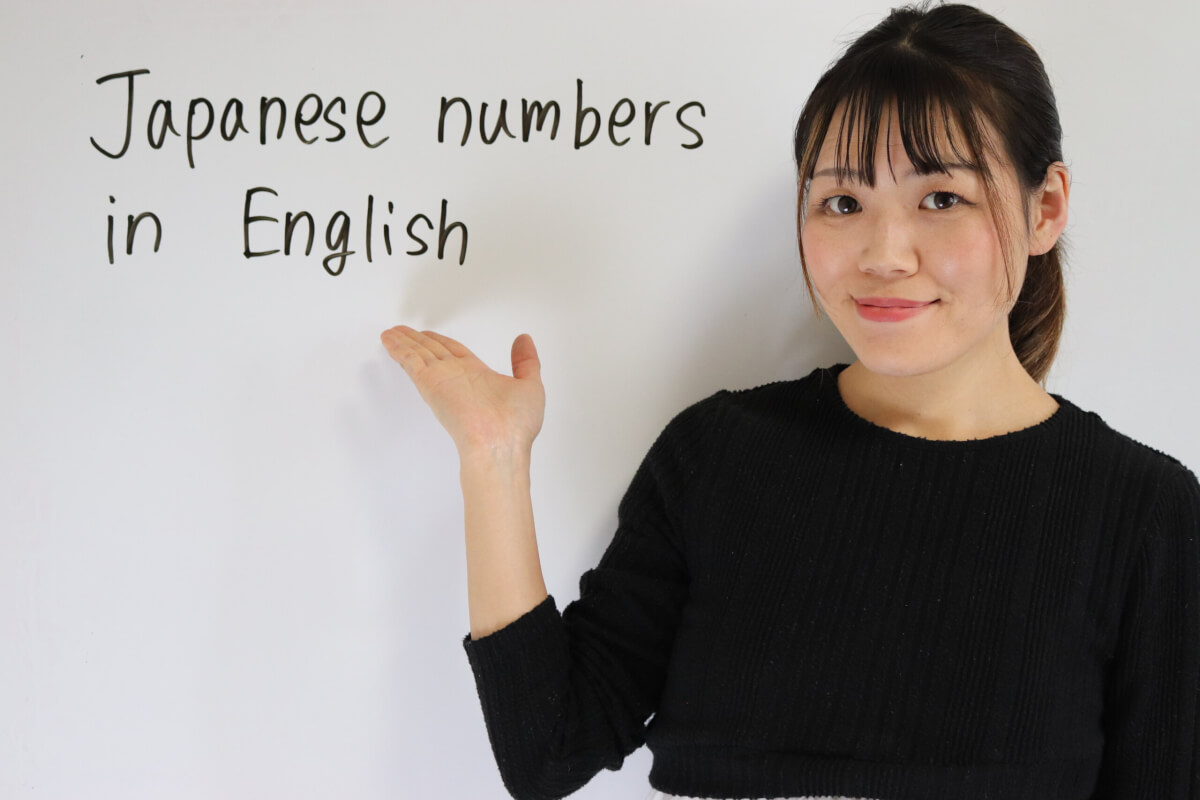
Here is the English translation of the Japanese numbers. It's okay if you cannot read Japanese Hiragana, we will introduce them in romaji.
How to say Japanese numbers in English?
Of course, the way numbers are said in Japanese and English is different. The only common reading is “0”, which is also read as “zero” in Japanese. Here is how to say the other numbers from 1 to 9. We will also show you how Japanese people gesture when counting with their fingers.
Japanese numbers in English translation
1~9
| Romaji | Numbers |
|---|---|
| zero/ree | 0 |
| ichi | 1 |
| ni | 2 |
| san | 3 |
| yon/shi | 4 |
| go | 5 |
| roku | 6 |
| nana/shichi | 7 |
| hachi | 8 |
| kyuu | 9 |
| juu | 10 |
10~90
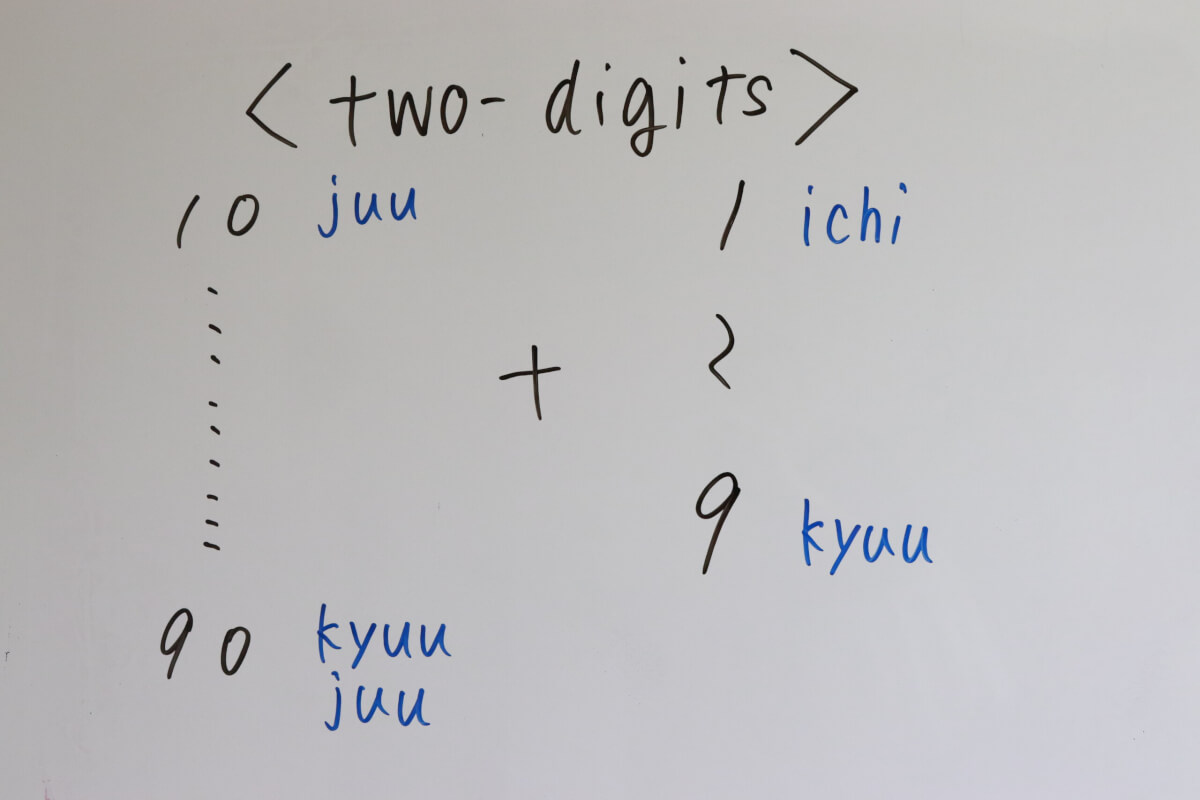
| Romaji | Numbers |
|---|---|
| juu | 10 |
| ni juu | 20 |
| san juu | 30 |
| yon juu | 40 |
| go juu | 50 |
| roku juu | 60 |
| nana juu | 70 |
| hachi juu | 80 |
| kyuu juu | 90 |
100~900
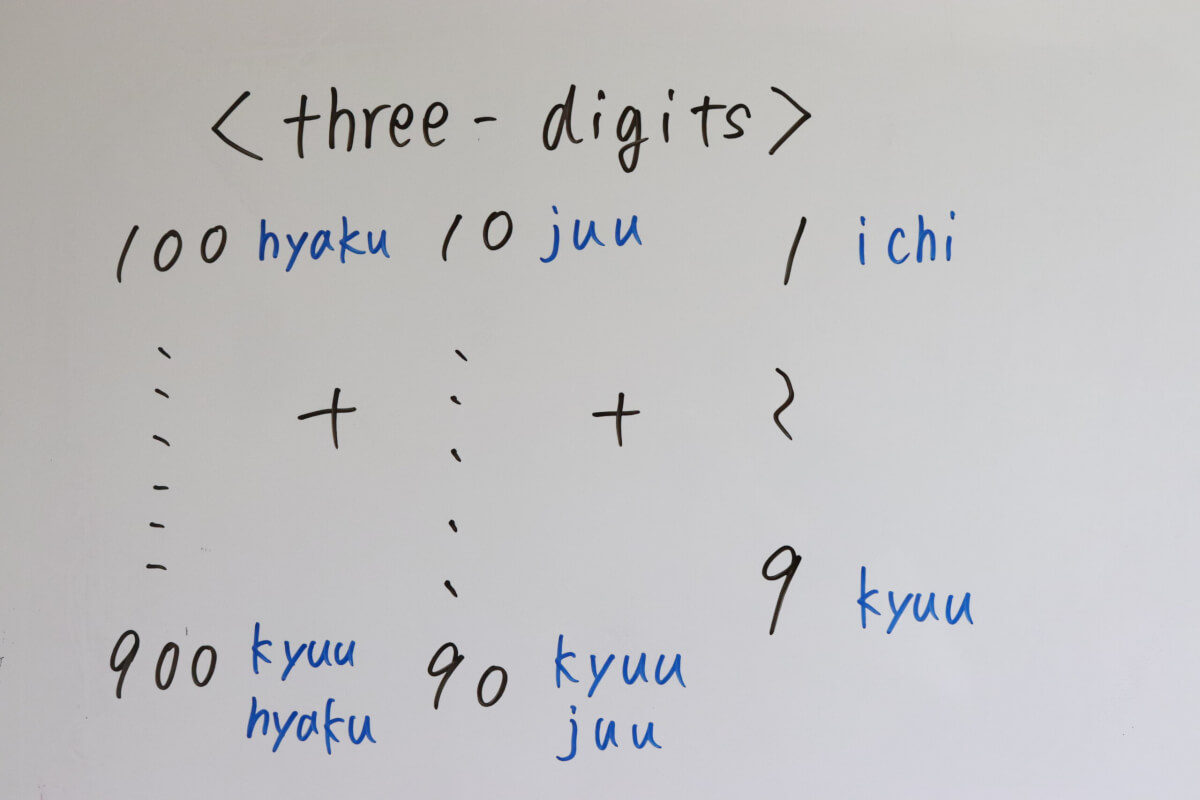
| Romaji | Numbers |
|---|---|
| hyaku | 100 |
| ni hyaku | 200 |
| san byaku | 300 |
| yon hyaku | 400 |
| go hyaku | 500 |
| roppyaku | 600 |
| nana hyaku | 700 |
| happyaku | 800 |
| kyuu hyaku | 900 |
Some numbers are read differently than the numbers 1-9 above, with 600 being “roppichaku” instead of “roku-hyaku”.
1,000~9,000
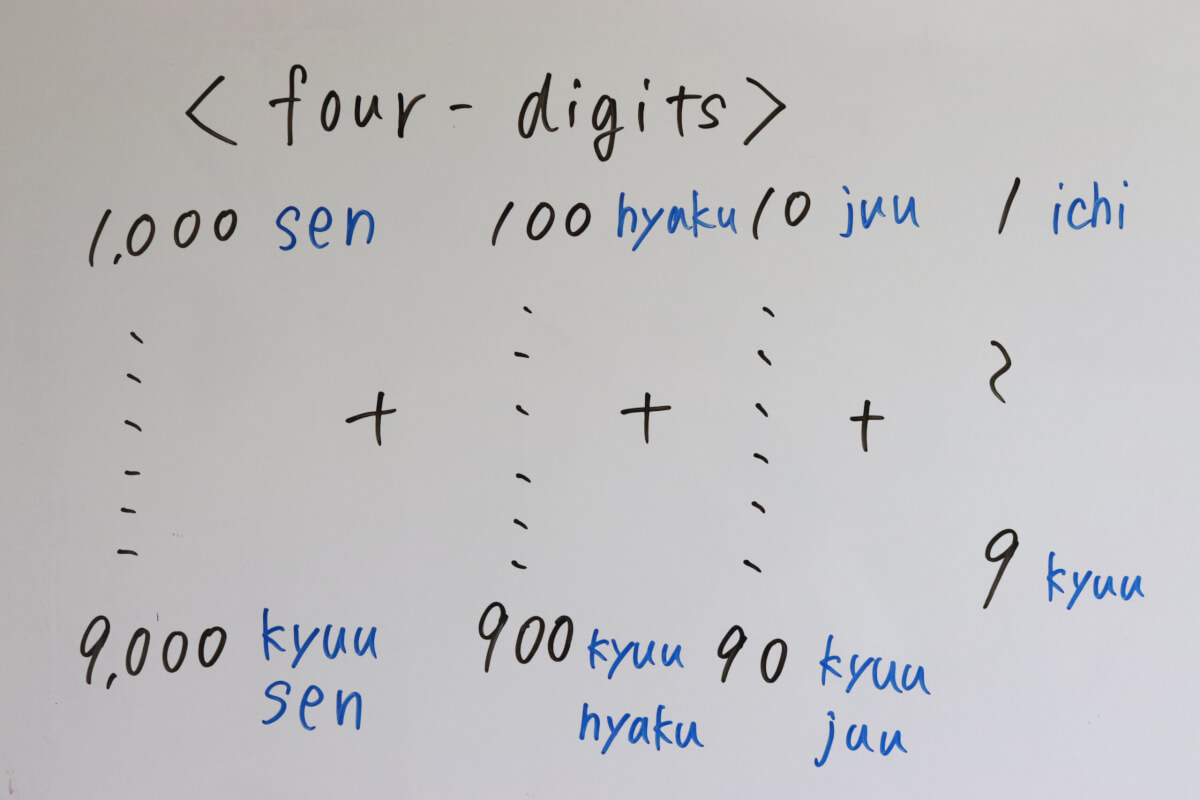
| Romaji | Numbers |
|---|---|
| sen/issen | 1,000 |
| ni sen | 2,000 |
| san zen | 3,000 |
| yon sen | 4,000 |
| go sen | 5,000 |
| roku sen | 6,000 |
| nana sen | 7,000 |
| hassen | 8,000 |
| kyuu sen | 9,000 |
10,000~90,000
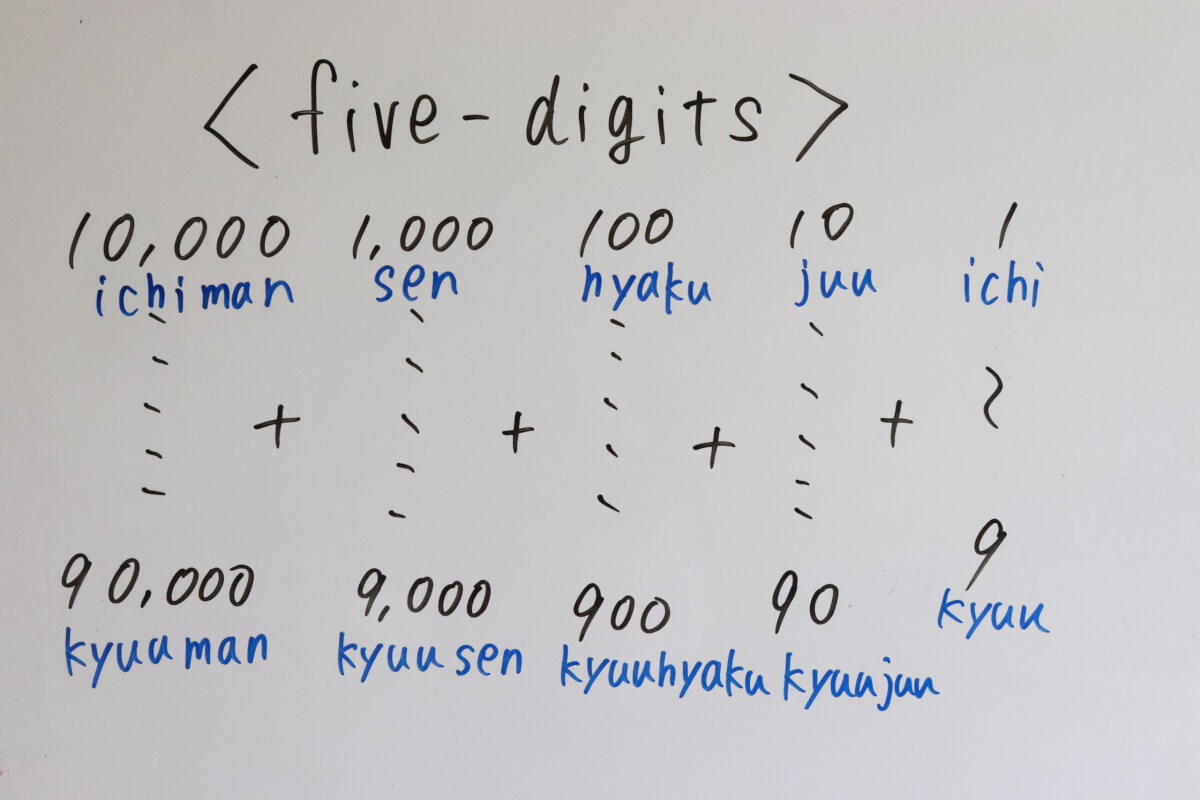
| Romaji | Numbers |
|---|---|
| ichi man | 10,000 |
| ni man | 20,000 |
| san man | 30,000 |
| yon man | 40,000 |
| go man | 50,000 |
| roku man | 60,000 |
| nana man | 70,000 |
| hachi man | 80,000 |
| kyuu man | 90,000 |
100,000~big numbers
| Romaji | Numbers |
|---|---|
| juu man | 100,000 |
| hyaku man | 1,000,000 |
| issen man | 10,000,000 |
| ichi oku | 100,000,000 |
| juu oku | 1,000,000,000 |
| hyaku oku | 10,000,000,000 |
How Japanese shows numbers with fingers
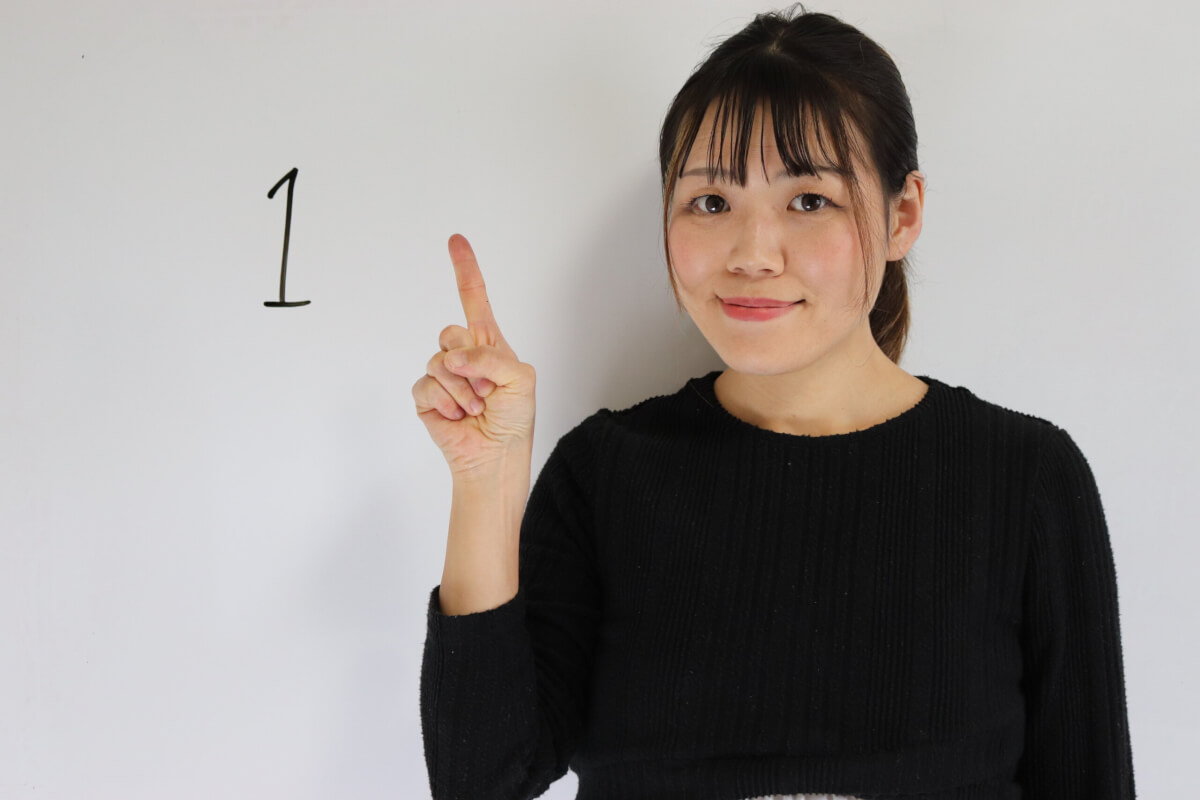
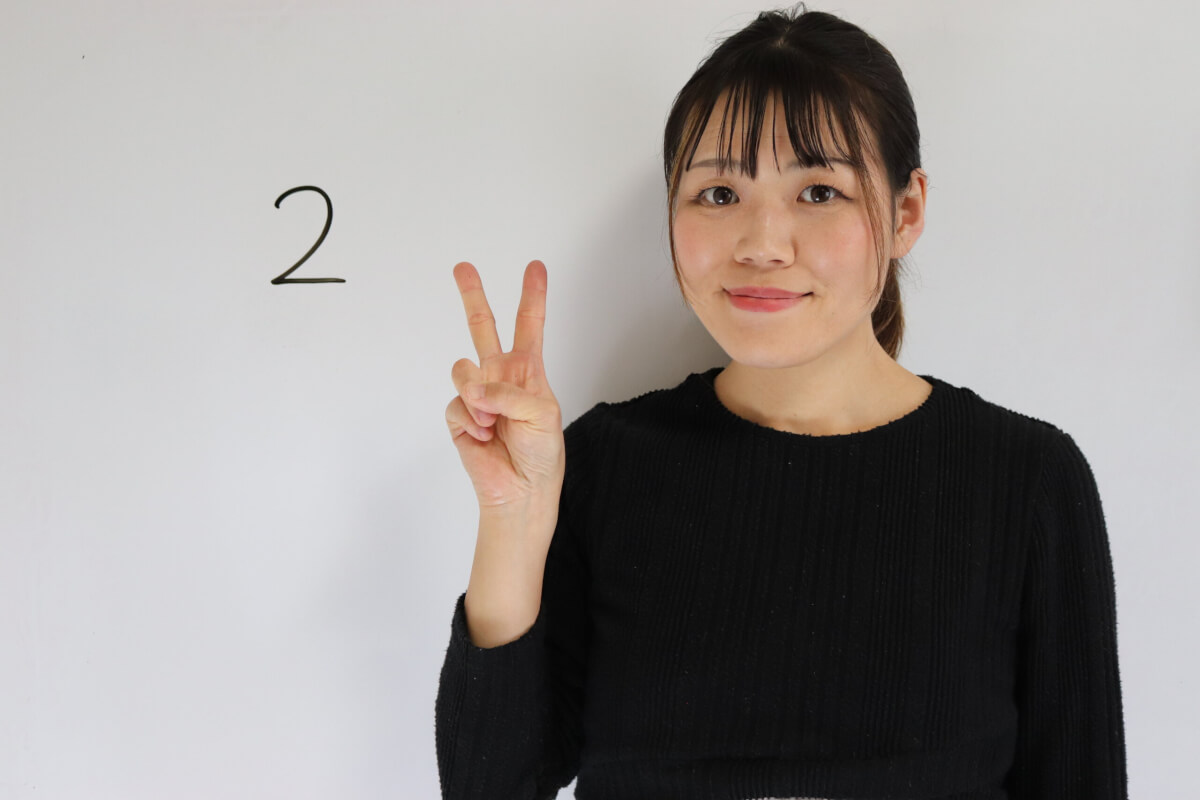
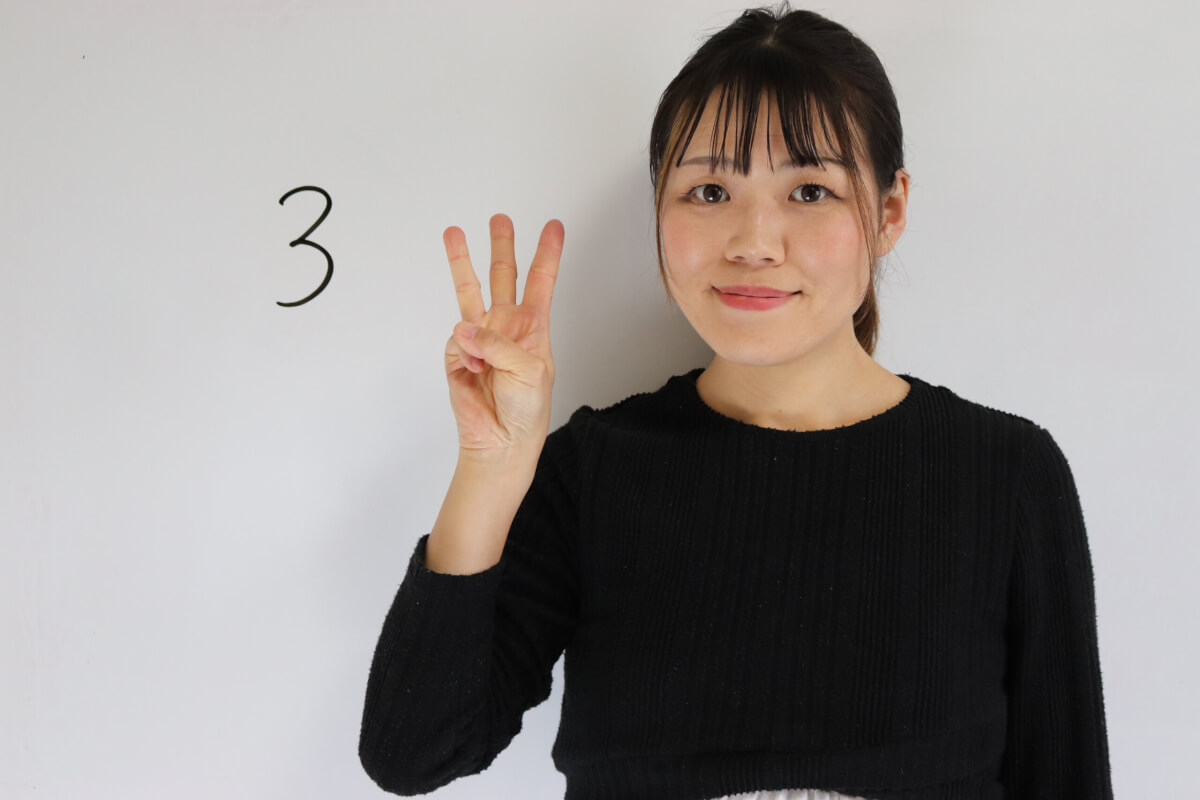
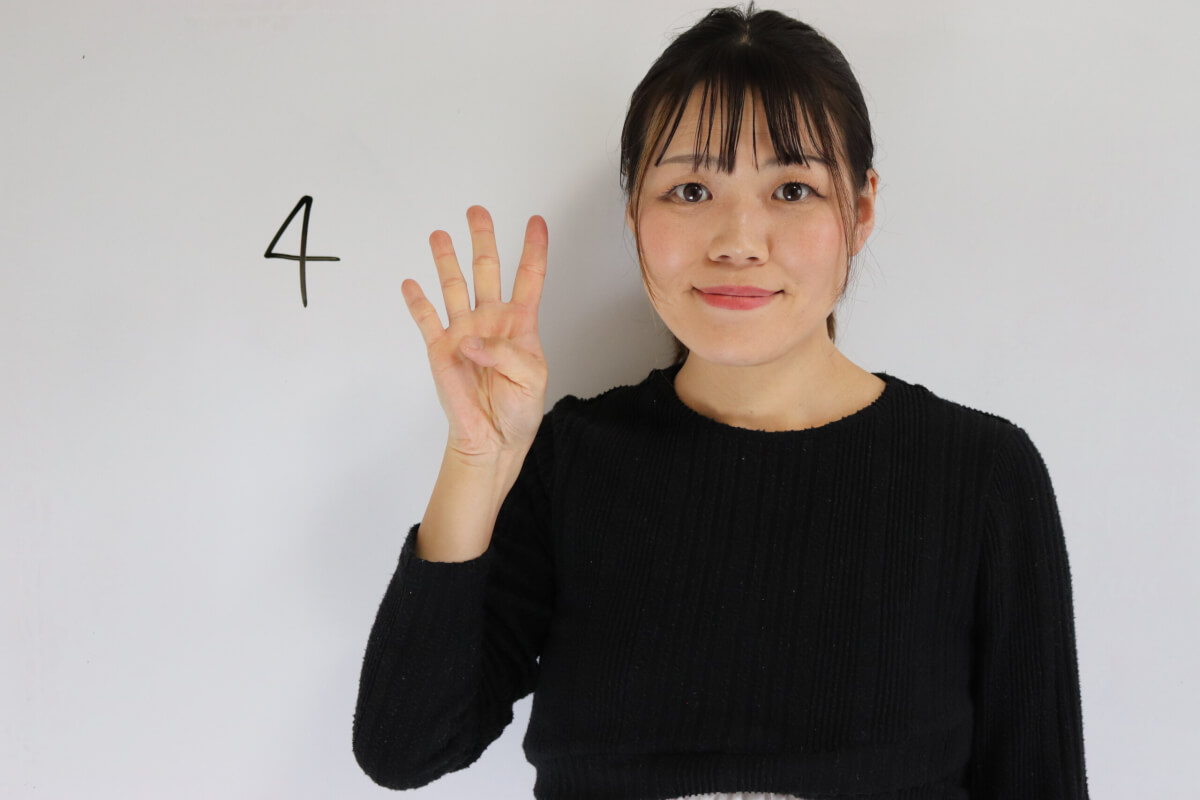
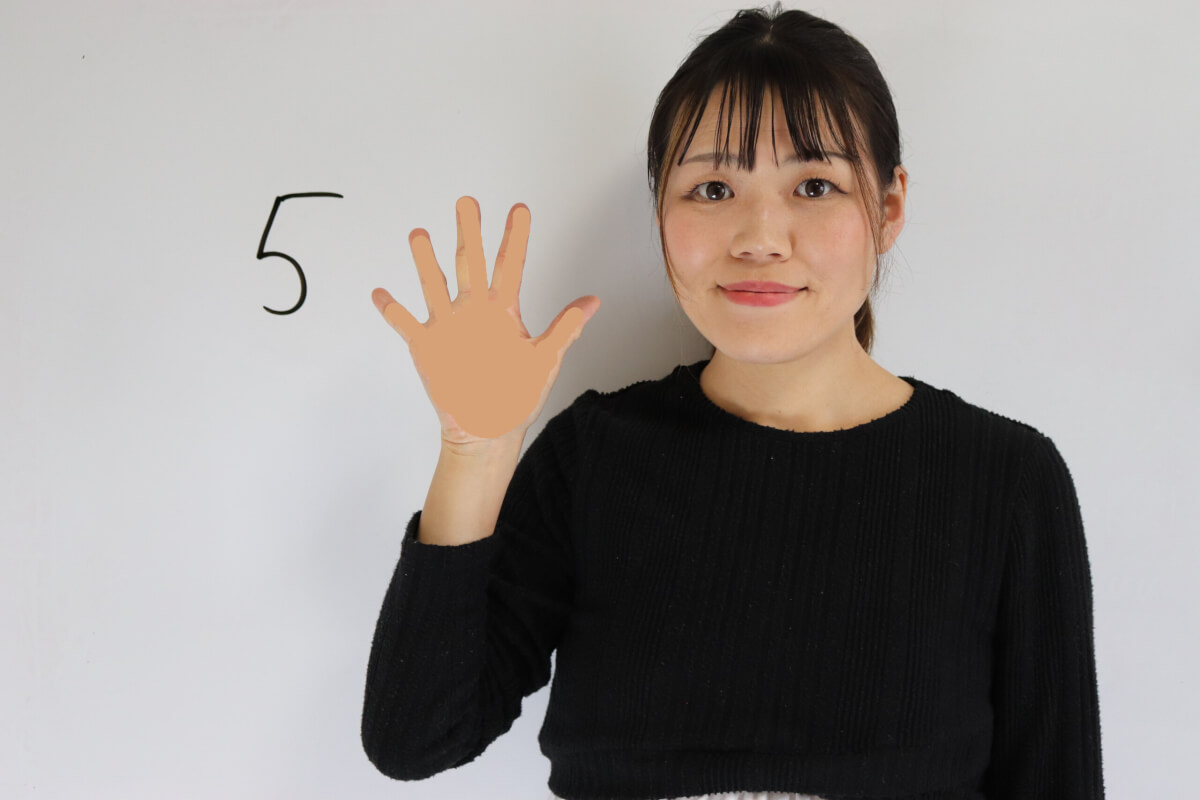
Japanese people use their fingers differently when counting numbers. 1 is counted with the index finger. From the index finger, the numbers are counted with the middle finger, ring finger, and little finger. This is different from the West.
You should know Japanese counters too
In Japanese, counter words are necessary for counting. The most used one is “tsu”. When counting small things in general, we count “one: hitotsu, two: futatsu, three: mittsu”.
Saying only “1” or “3” will not be understand to Japanese people. When you say the date, you must also add “day: nichi”. Note that the numbers read differently depending on the Counter.
Must know counters
| Romaji | Kanji |
|---|---|
| Ko & tsu for small things | 個 & つ |
| Nichi, ka for days | 日 |
| Gatsu for months | 月 |
| Nen for years | 年 |
| Yen for Japanese yen | 円 |
| Tori, nin for people | 人 |
| Hon for long & thin things | 本 |
| Satsu for books | 冊 |
| Chaku for clothes | 着 |
| Soku for shoes | 足 |
It is said that there are as many as 500 counters in Japanese. However, you don't have to memorize them all. Japanese also have at most 20. If you can remember 5 at first, or 10 if possible, you will have no trouble living in Japan.
